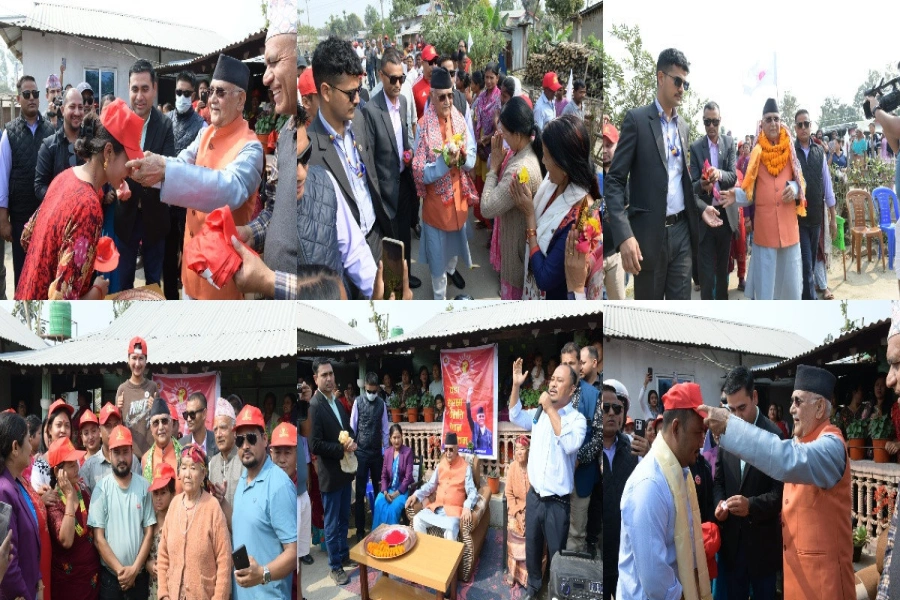KATHMANDU, June 22: Experts from South Asia and South East Asia have highlighted the various opportunities and challenges associated with the China-proposed Belt and Road Initiative during a two-day international conference which was concluded in Kathmandu on Friday.
Delivering her presentation during the "Fourth International Conference on Belt and Road for development and prosperity of South Asia", Darlene V. Estrada, Centre of International Relations and Strategic Studies under the Foreign Service Institute of Philippines said that her country has remained very receptive towards China's BRI since it joined in 2017.
"The Philippine government sees an opportunity in participating in BRI because the Philippine development plans are aligned or congruent to the objectives of the BRI, however, risks remain. The Philippine government is aligning its development plans according to Philippine national interests, not with anything else," she said.
Research Associate at the East Asian International Relations of Malaysia Nur Shahadah Jamil said that the new Mahathir administration has continued engagement with China for economic cooperation though it scrapped some projects under the BRI which were agreed during the previous Najib administration.
"We cannot abandon our strong economic partnership with China though we have scrapped some projects under the BRI after the new government came. The Chinese investment is growing rapidly at present in Malaysia," she said.
Nepal-China agree to conclude BRI Implementation Plan 'soon' as...

Macroeconomic expert of the Laos government, Vanxay Sayavong shared that his country is taking huge advantage from the connectivity projects including China-Laos railway built under the framework of the BRI.
He suggested that the participating countries should address the concerns of local communities while executing projects under the BRI.
"If the concerns raised by local communities are not addressed, the projects built under the BRI may face strong protests at the local level like in Laos in the recent past," he said referring to his country's experience while constructing the China-Laos railway.
Director at the Institute of South Asian Studies under the Xizang Minzu University of Tibet Autonomous Region of China said that China and Nepal have been expanding their economic cooperation in recent years. "We are determined to execute the cross-border railroad connectivity though it may take some time," he said.
He was of the view that India's hegemonic behaviour towards Nepal is thwarting China-Nepal relations at times. "Nepal needs to pursue an independent foreign policy and deepen its close ties with next-door neighbour China," he suggested.
Hina Aslam, the head of China Study Centre at Sustainable Development Policy Institute of Pakistan, shared that Pakistan has been benefitting from the China-Pakistan Economic Corridor (CPEC) by constructing energy plants, seaport, railroad connectivity projects and special economic zones. "However, hostile relationship with India over Kashmir issue and worsening security situation of Afghanistan may bring some problems in CPEC," she said.
Mahfuz Kabir from Bangladesh highlighted Bangladesh-China cooperation under the BRI. "Now, Bangladesh is bilaterally working with China as the Bangladesh-China-India-Myanmar (BCIM) corridor is not moving ahead as expected," he said.
As South Asian countries are heavily dependent on China for trade and investment, they need strong railroad connectivity with China, Kabir said.
Krishna Prasad Oli, the member of National Planning Commission of Nepal, said that the BRI is offering various economic opportunities for Nepal. "We want to enhance railroad connectivity with China," he said.
Wang Yuzhu from the Chinese Academy of Social Sciences said that South Asian countries can reap benefit from the Trans-Himalayan connectivity network under the BRI. "Belt and Road Initiative is a cooperation platform for creating new economic opportunities for various countries around the world. Let's work together to get mutual benefit by creating a win-win situation. China has no intention to put any countries in debt trap at all," he said.
The conference, organized by Nepal-China Friendship Forum, witnessed the participation of scholars and experts from Nepal, China and other Asian countries including India, Pakistan, Bangladesh, Laos, Malaysia and the Philippines.
Updated on June 25, 2019.





























-1200x560-1771928761.webp)









